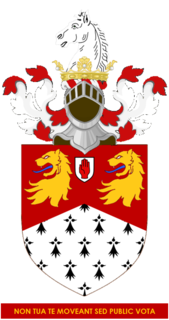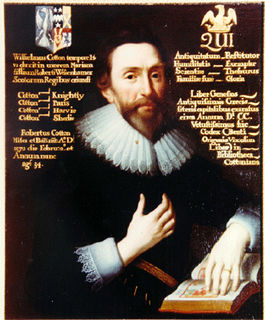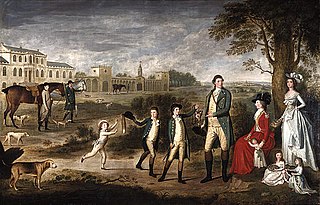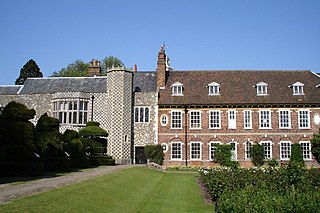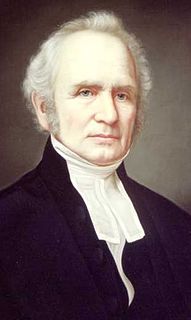
There have been two Baronetcies created for persons with the surname Allin, both in the Baronetage of England. Both creations are extinct.
Contents
The Allin Baronetcy, of Blundeston in the County of Suffolk, was created in the Baronetage of England on 7 February 1673 for the naval commander Sir Thomas Allin. [1] The title became extinct on the death of the second Baronet in 1696.
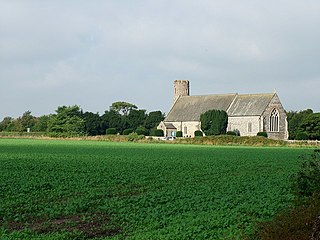
Blundeston is a village and civil parish in the East Suffolk district of the English county of Suffolk. It is situated in the north of the county, about 2 miles (3 km) inland between Great Yarmouth and Lowestoft, close to the North Sea coast. Blundeston Prison was located on the southern edge of the village but closed and sold in 2016. The old prison site is being redeveloped to include housing and community facilities.

Admiral Sir Thomas Allin, 1st Baronet (1612–1685) was an officer of the Royal Navy who saw service in the English Civil War, and the Second and Third Anglo-Dutch Wars. A Royalist during the Civil War, he returned to service after the Restoration and eventually rose to the rank of Admiral of the White after serving under some of the most distinguished military figures of the era, including Prince Rupert of the Rhine.
The Allin Baronetcy, of Somerleyton in the County of Suffolk, was created in the Baronetage of England on 14 December 1699 for Richard Allin. [2] He was the son of Edmund Anguish and his wife Alice Allin, he assumed the name and arms of Allin in lieu of that of Anguish upon inheriting the Somerleyton estates on the death, in 1696, of his maternal uncle, Sir Thomas Allin, 2nd Baronet of Blundeston. He was Member of Parliament for Dunwich 1703-1710. The title became extinct on the death of the fourth Baronet in 1794.

Somerleyton is a village of medieval origin in the English county of Suffolk. It is centred 4.5 miles (7 km) north-west of Lowestoft and 5.7 miles (9 km) south-west of Great Yarmouth. The land associated with the village is partly in The Broads National Park including its free moorings and marina on the River Waveney close to its public house. Somerleyton is in the civil parish of Somerleyton, Ashby and Herringfleet which maintains a village hall elsewhere and cricket ground and tennis court in the village. Other amenities include a village shop and a railway station.
Dunwich was a parliamentary borough in Suffolk, one of the most notorious of all the rotten boroughs. It elected two Members of Parliament (MPs) to the House of Commons from 1298 until 1832, when the constituency was abolished by the Great Reform Act.
